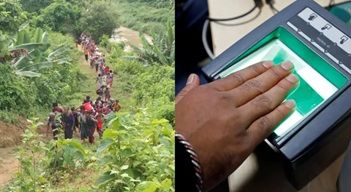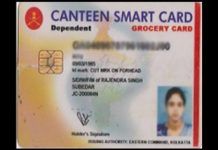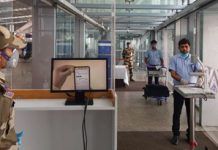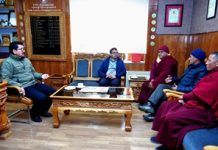Nudged by the Union Ministry of Home Affairs, the Mizoram government is preparing to collect the biometric details of “illegal migrants” in a special drive across the state, which shares a 510-km long border with Myanmar. However, the state has conveyed to the central government that it would be “difficult” to meet the September 30 deadline,
The move is significant as Mizoram Chief Minister Zoramthanga has consistently opposed the central government’s advice to deport the refugees from Myanmar, where a military coup in February 2021 — which toppled the elected government of Aung San Suu Kyi and sparked violent protests — had triggered an exodus of people of Kuki-Chin ethnicity to India.
Zoramthanga maintains that the central government should explore the possibility of granting political asylum to the refugees.
Zoramthanga said the Mizoram government’s decision not to deport the refugees from Myanmar was similar to the decision taken by the Government of India during the 1971 Bangladesh liberation war, when millions of refugees had crossed into India.
On the other hand, Manipur Chief Minister N. Biren Singh has blamed “infiltrators” from Myanmar for the ongoing violence in the state and accused them of indulging in the narcotics trade. These refugees share ethnic ties with Mizos and Kukis. On 3 May, ethnic clashes broke out between the non-tribal Meiteis and tribal Kukis in Manipur. In the violence that has continued since, more than 150 people have been killed and several thousand displaced.
A senior Mizoram government official said that notwithstanding the decision to collect biometrics, there was no immediate plan to push back the refugees, numbering around 35,000, to Myanmar. Instead, the state government has been seeking funds from the central government to support them better.
“The Mizoram government feels that had these set of refugees been covered under the CAA (Citizenship (Amendment) Act, 2019) they would not have faced deportation,” the official said. The CAA — the rules for which have not yet been notified — seeks to fast-track citizenship for Hindus, Parsis, Sikhs, Buddhists, Jains and Christians fleeing persecution from Pakistan, Afghanistan and Bangladesh.
“But the state has decided to follow the MHA order and collect the biometrics of the refugees from Myanmar. We are in the process of creating teams of master trainers, drawn from the pool of state government employees, who will lead the drive. Their training was held last week,” the official said on the condition of anonymity.
A pilot exercise in this regard has already taken place in a refugee camp located in the Lunglei district. “The data which have been collected are being reviewed now. Based on the learnings from Lunglei, the drive will be scaled up. However, it is unlikely that we will be able to complete the drive by 30 September this year as directed by the MHA,” the official said.








